- Wenxi Zhu
- Posted on
- Jakarta, Indonesia
Over the past four days, more than 100 delegates and observers from 13 countries in the region were gathered at the Fourteenth Session of the IOC Sub-Commission for the Western Pacific (WESTPAC-XIV, 4-7 April 2023, Jakarta, Indonesia), deliberating how to further advance ocean science and innovative technologies in the post pandemic era to accelerate the development of ocean-based solutions for a sustainable ocean and economy.
Opened by H.E. Laksana T. Handoko, Chairman of the National Research and Innovation Agency, Indonesia, representing the host country, the Session set the stage for mainstream discussions about the transformation of ocean research into co-designed and solution-oriented research that responds to national and international challenges for sustainable development. This was further reinforced by a keynote about blue economy from H.E. Vivi Yulaswati, Deputy Chairperson of the Indonesian Ministry of National Development Planning.
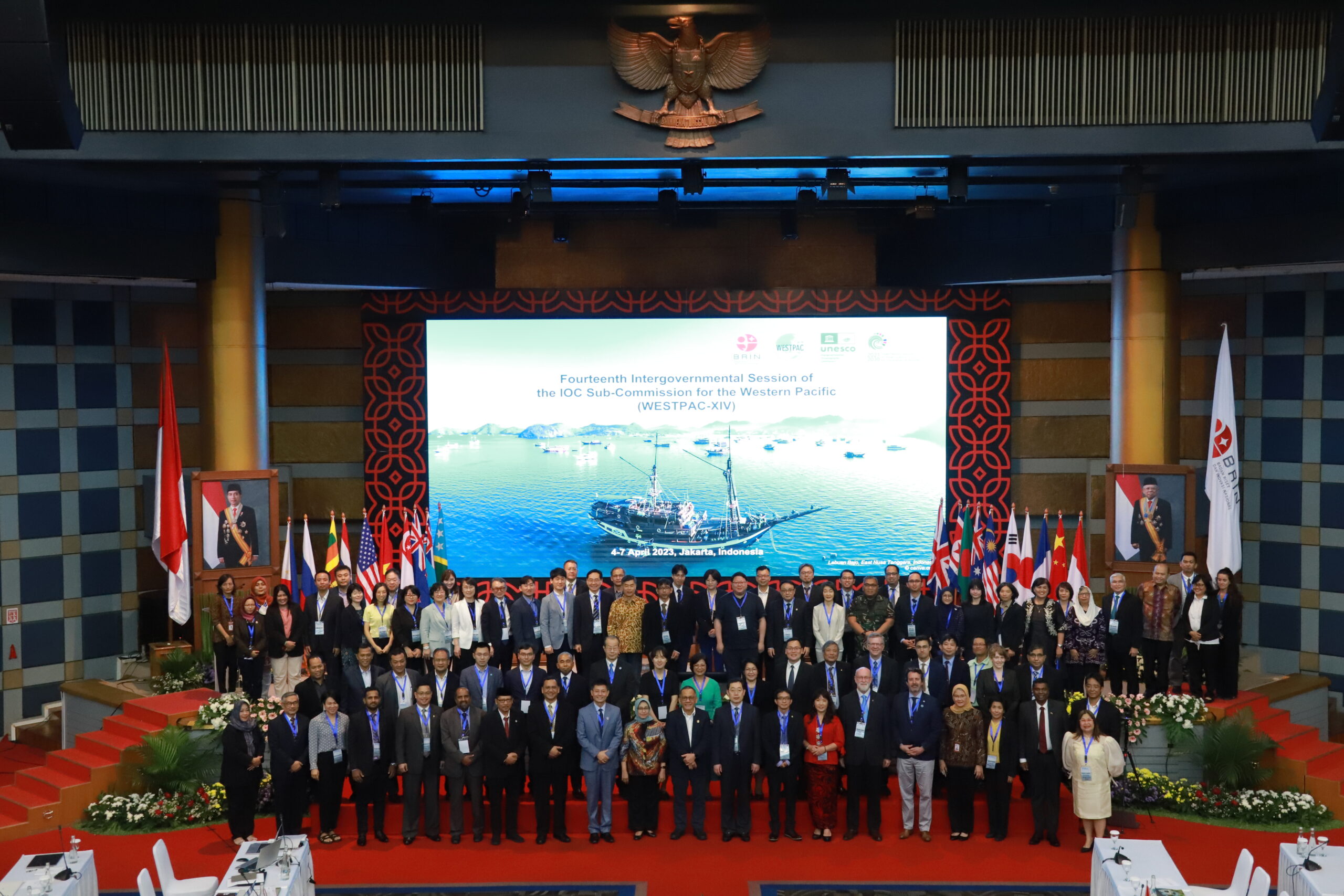
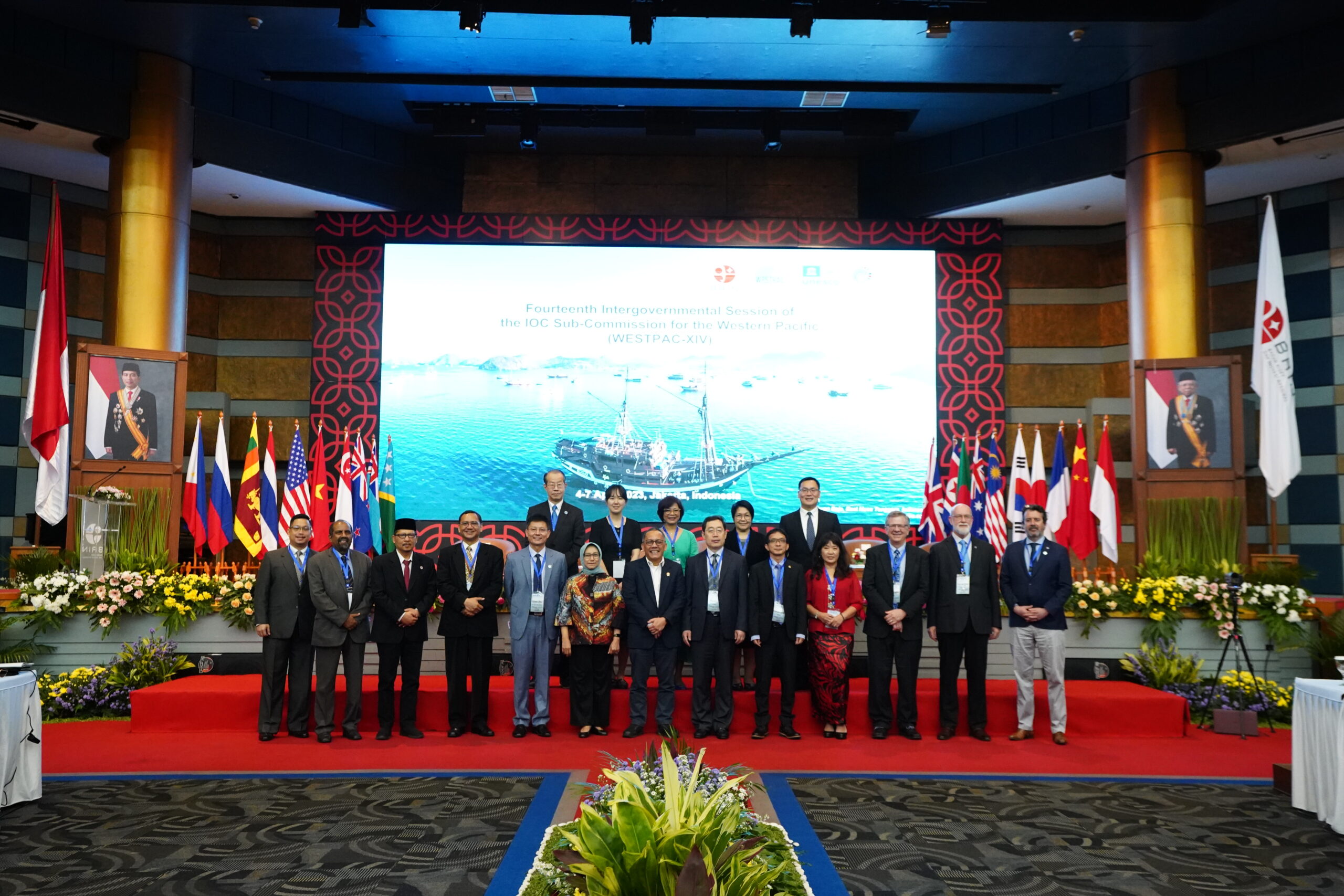
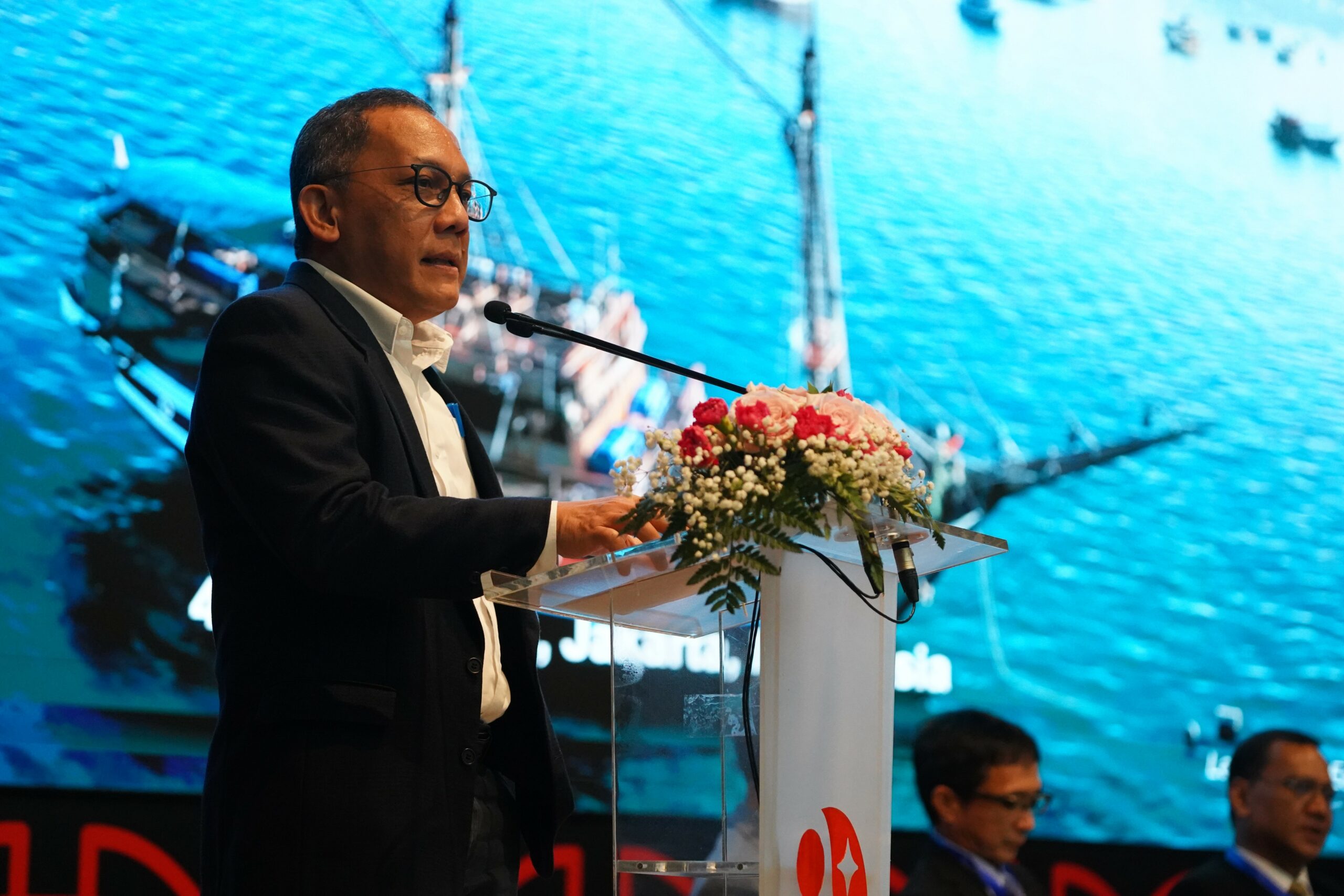
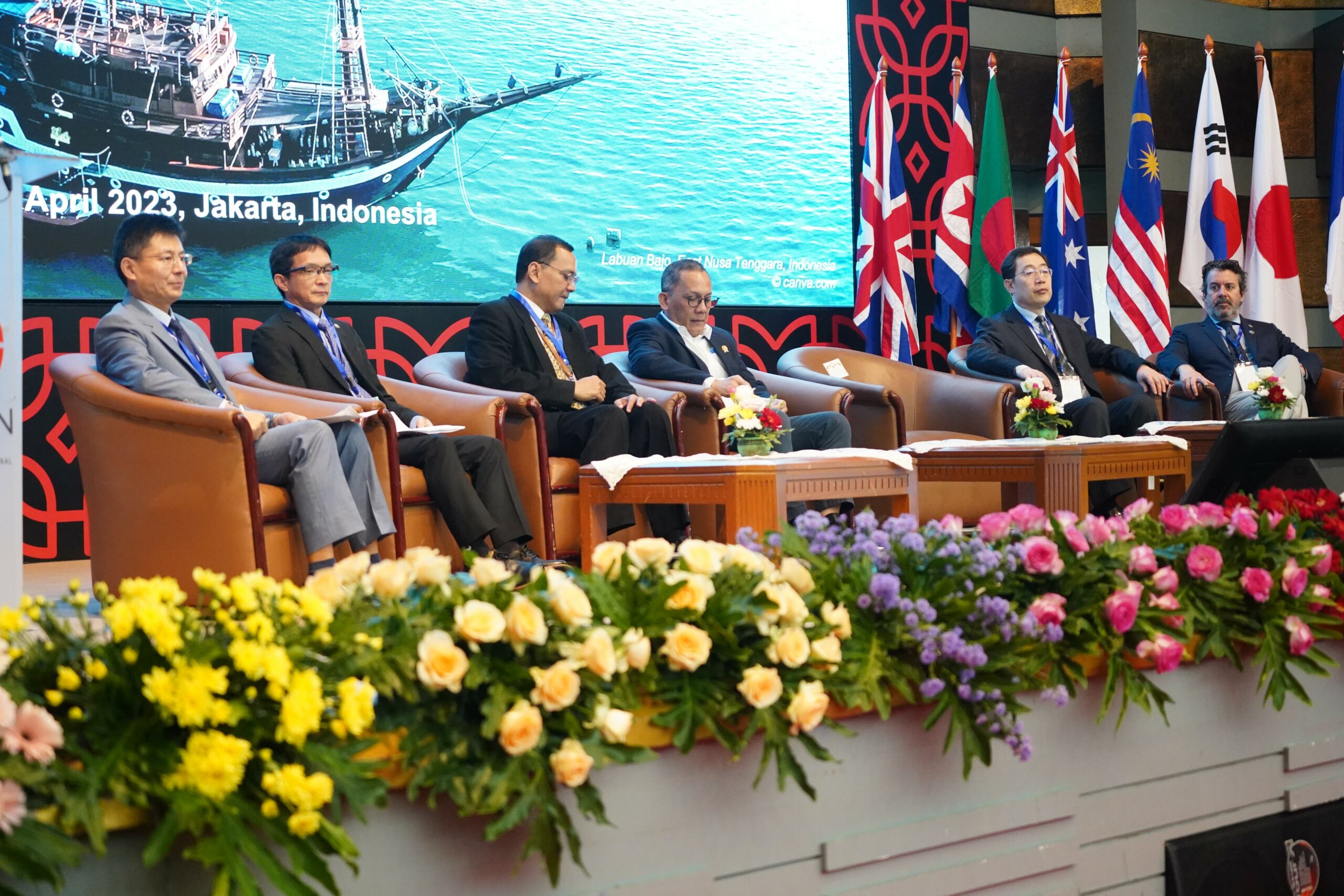
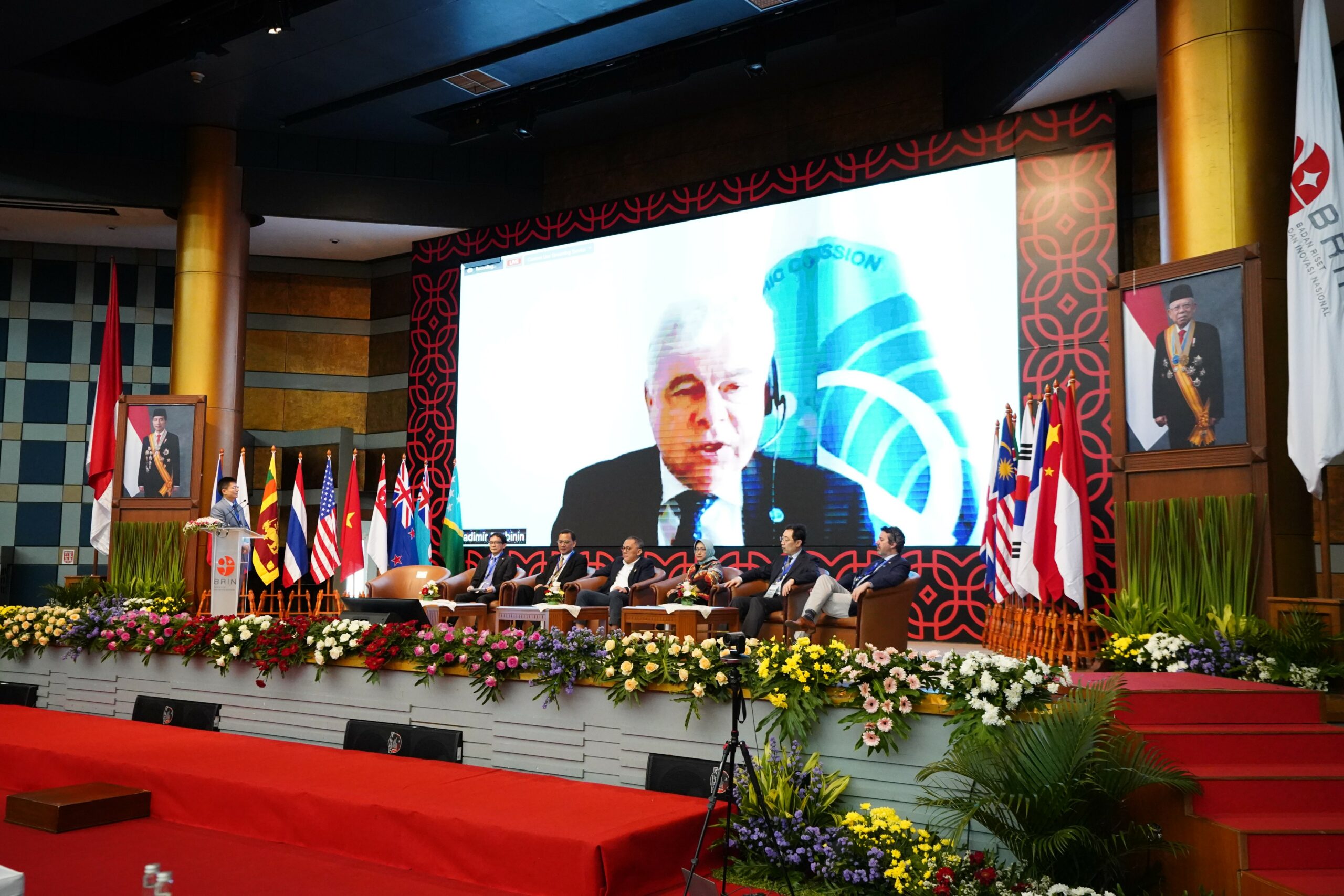
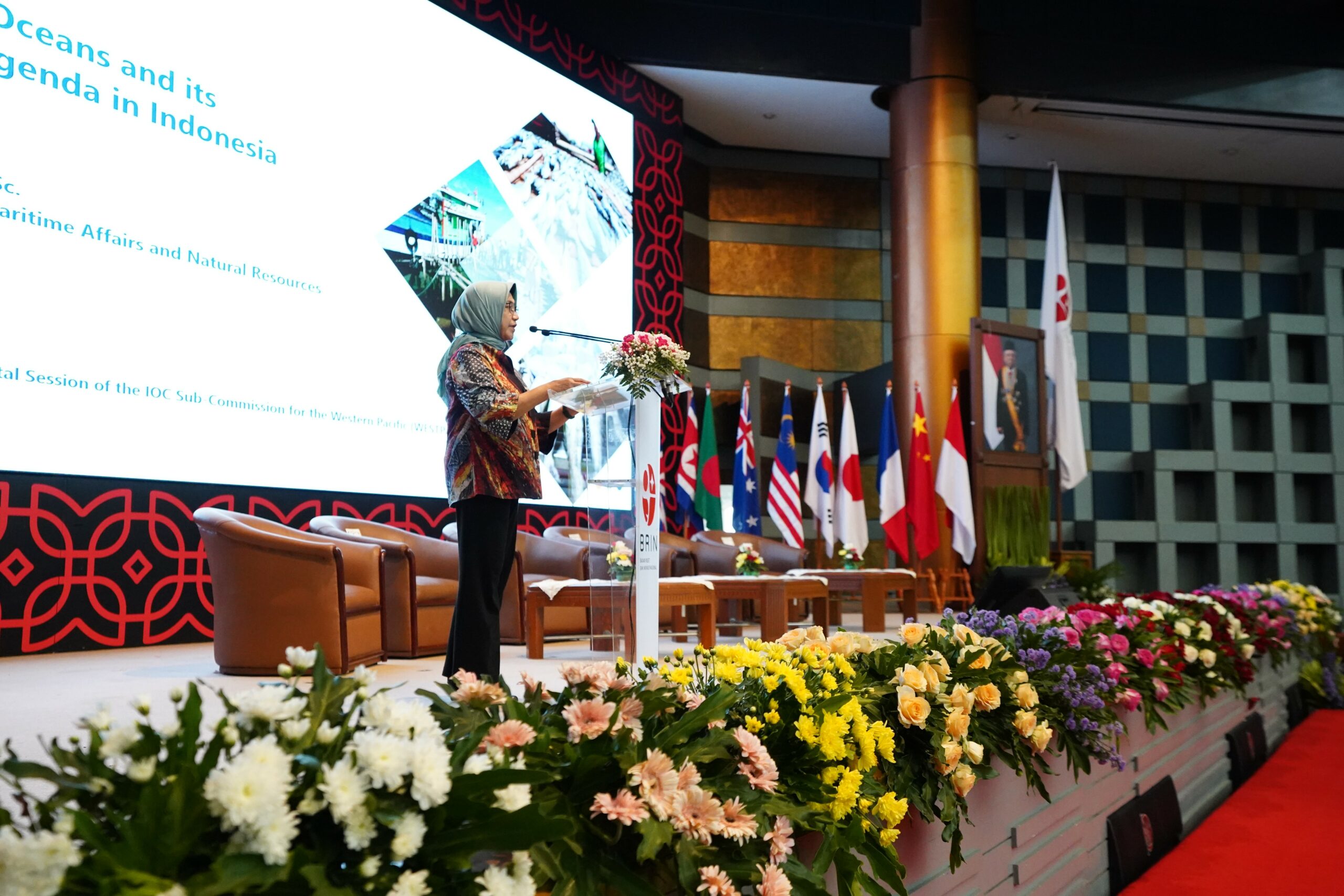
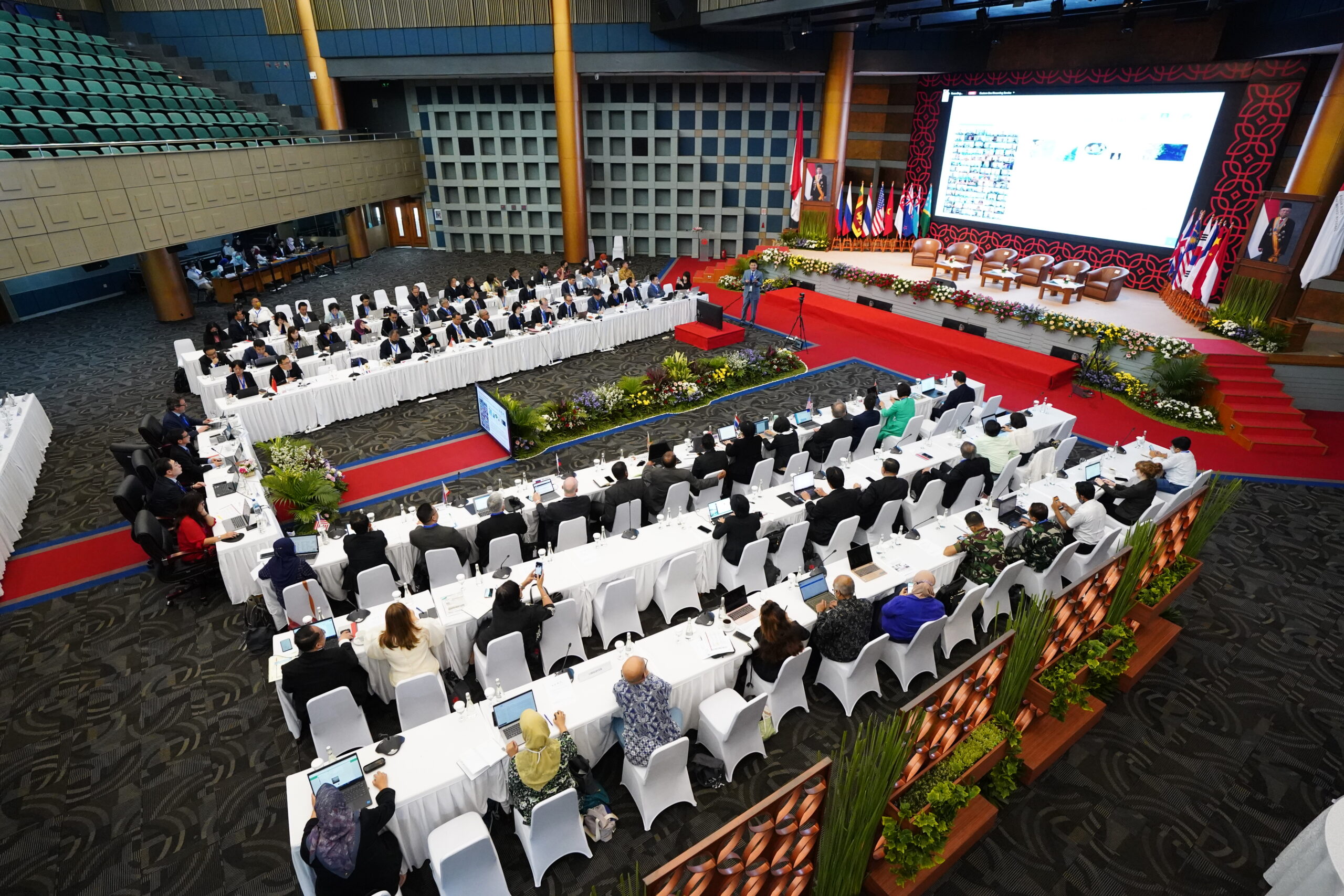
The pandemic has given the ocean “a breathing space”. However, multiple waves of COVID-19 outbreaks also generated enormous socio-economic consequences on global marine tourism, capture fishery and aquaculture industries, with a great number of people, especially the coastal communities suffering larger economic shocks.
The pandemic has affected and will continue to affect various aspects of human lives and the environment. Only sustainable use of marine resources can bring more economic benefits. The Session brought together national competent governmental agencies, marine scientific communities and other relevant IOC ocean stakeholders in the region, aiming to foster ocean science-policy interface, advance ocean science development and cooperation, enhance ocean scientific, technical and institutional capacities, and jointly develop ocean science solutions to critical challenges for sustainable development in the Western Pacific and its adjacent areas.
Member States applauded the developments and achievements by the Sub-Commission during the last intersessional period, in particularly its leading role in the region in engaging member states, various institutions and diverse ocean stakeholders in; promoting, and mobilizing concrete Decade Actions for the UN Ocean Decade. The Sub-Commission has been developing, coordinating and implementing the Ocean Decade related Actions and activities, including the Decade Regional Kick-off Conference, and four Decade Actions. The four Actions include three Decade Projects: UN 21-“Accelerate Marine Spatial Planning in the Western Pacific”, UN 22- “Stem the tide of Asia’s riverine plastic emission into the ocean”, and UN 23- “Accelerating capacity development transformations in the Western Pacific – Regional Network of Training and Research centres (RTRCs) on Marine Science”; and one Decade Programme-UN 24 entitled “Second Cooperative Study of Kuroshio and Adjacent Regions – from its sciences to human well-being”. More potential actions are under development.
To strengthen ocean science-policy interface, a Senior Governmental Officials Roundtable (SGOs Roundtable) was held during the Session, with the adoption of a joint SGOs Jakarta Statement. Countries who have established their National Decade Committees, also shared their NDC development and challenges at a side event-NDCs Forum.
Overwhelming support was expressed by Member States for the Sub-Commission’s continued efforts in assisting Member States to address their challenges, increase research capacities and transfer marine technology, as demonstrated by the Sub-Commission’s endeavors over the recent years to minimize and address the impacts of ocean acidification ocean acidification, advance the application of remote sensing for marine habitat conservation, deliver knowledge on harmful jellyfish for public health, accelerate marine spatial planning, and support coral reef marine protected areas (MPAs) management.
Capacity development is a key means of implementation for the Sustainable Development Goals (SDGs). Member States also examined the capacity development approach and activities that the Sub-Commission has been taking, and expressed their unanimous support and willingness to contribute to its co-designed and co-developed capacity development activities, in particular the IOC Regional Network of Training and Research Centers on Marine Science (RTRCs). Furthermore, Member States thoroughly reviewed and approved, upon the excellent evaluation result, a proposal of the City University of Hong Kong, China to host a Regional Training and Research Center on Coastal Contaminant Monitoring and Marine Innovative Technologies (RTRC-Coastal COMMIT).
To guide all countries and institutions in the region for cooperative activities, the Sub-Commission formulated its programme and budget for the period May 2023–April 2025, as guidance on the programmes and activities that Member States would like to jointly promote and seek funding from various sources to support their implementation.
The Sub-Commission finally elected its officers for the next intersessional period, and accepted with great appreciation the offer of Japan to host the next session in early 2025.

